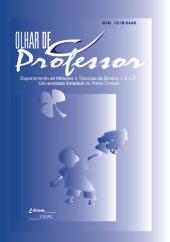OS PROFISSIONAIS DA EDUCAÇÃO DE ONGS: UMA NOVA CATEGORIA DOCENTE?
Conteúdo do artigo principal
Resumo
O objetivo desta pesquisa é compreender a tipologia do quadro de recursos humanos que compõem as ONGs envolvidas com a causa educativa, nesse início de século XXI, no Brasil. Ante a ausência de pesquisas próprias para essas organizações, estabeleceu-se como referência conceitual as discussões, trazidas pelo tema de formação de professores e pelo trabalho docente, relativas à educação escolar. Diante disso, a questão que se coloca, tendo em mente o cenário maior da educação nacional, é de teor comparativo: os profissionais da educação de ONGs podem ser considerados uma nova categoria docente? A partir das premissas da educação como um processo amplo – que extrapola limites institucionais – e do reconhecimento das ONGs como uma nova tipologia de agentes educacionais brasileiros, discute-se a qualidade do trabalho educativo desenvolvido por duas delas:a Ação Educativa e o Projeto EmCantar. Dentre as diversas atividades observadas, depoimentos recolhidos e relatos desenvolvidos no período de pesquisa de campo junto às organizações, selecionou-se para a presente análise aquelas relativas à temática da formação de seus trabalhadores como uma nova categoria profissional. A conclusão que se infere, ao final da presente pesquisa, é sobre um novo tempo para a educação nacional: tempo de parcerias e de cooperação.
Downloads
Detalhes do artigo
Autores que publicam nesta revista concordam com os seguintes termos:
a) Os autores mantêm os direitos autorais e concedem à revista o direito de primeira publicação, com o trabalho simultaneamente licenciado sob a Creative Commons Attribution License Atribuição 4.0 Internacional (CC BY 4.0) que permite o compartilhamento do trabalho com reconhecimento da sua autoria e publicação inicial nesta revista.
b) Os autores são autorizados a assinarem contratos adicionais, separadamente, para distribuição não exclusiva da versão publicada nesta revista (por exemplo, em repositórios institucionais ou capítulos de livros), com reconhecimento da sua autoria e publicação inicial nesta revista).
c) Os autores são estimulados a publicar e distribuir a versão onlline do artigo (por exemplo, em repositórios institucionais ou em sua página pessoal), considerando que isso pode gerar alterações produtivas, bem como aumentar o impacto e as citações do artigo publicado.
d) Esta revista proporciona acesso público a todo o seu conteúdo, uma vez que isso permite uma maior visibilidade e alcance dos artigos e resenhas publicados. Para maiores informações sobre esta abordagem, visite Public Knowledge Project, projeto que desenvolveu este sistema para melhorar a qualidade acadêmica e pública da pesquisa, distribuindo o OJS assim como outros softwares de apoio ao sistema de publicação de acesso público a fontes acadêmicas.
e) Os nomes e endereços de e-mail neste site serão usados exclusivamente para os propósitos da revista, não estando disponíveis para outros fins.
______________

Este obra está licenciado com uma Licença Creative Commons Atribuição 4.0 Internacional.

